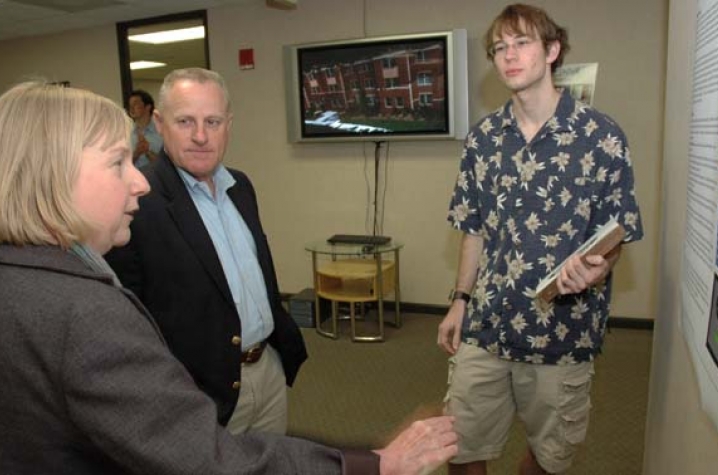Students Help LexTran Solve Riders' Problems

LEXINGTON, Ky. (April 29, 2010) − Sixteen students in a University of Kentucky psychology class today presented proposals for making Lexington's public transit system's website and information-distribution system more rider-friendly.
The students in psychology Professor Melody Carswell's human-technology interaction course presented ideas like more readable maps, easily understandable routes, two-sided bus-stop signs and easily navigable website pages.
Since the start of UK's 2010 spring semester, the class, which includes a mix of psychology and engineering students, has studied LexTran's communication methods. They have already suggested some changes to the public transit system's website that Lextran has adopted.
"The students have been out riding buses, observing how other riders respond to the existing communication materials," said Carswell, who described the students' work as contributing to UK's town-gown relationship.
LexTran General Manager Rocky Burke and other LexTran managers attended today's presentations at the UK Center for Visualization and Virtual Environments (Vis Center). In addition to serving on the College of Arts and Sciences' psychology faculty, Carswell is assistant director of the Vis Center, which is part of the UK College of Engineering.
"It is very exciting to see the students' interpretations of how we can move forward. LexTran has come a long way, but we still have a long way to go. We will certainly consider all these recommendations as we make changes to the system," Burke said.
Virginia Lacefield, a student in the class, described the project as "a real-world practical way to use what we've learned this semester."
Her student team worked on improving LexTran's website.
"We did surveys of the website users, a 'think-aloud' exercise of people using the site. We developed quick and easy changes that would greatly improve the site.
"The nice thing is, it gives us a chance to use what we're learning in real-world applications," Lacefield said.
Electrical and computer engineering graduate student Paul Eberhart said, "I'm involved in a computer engineering project, designing hardware and software to support the use of location-aware buses. My existing knowledge of electronics, programming, and embedded systems allows me to quickly visualize and technically evaluate a number of feasible solutions needed to evaluate them from a human-factors perspective."
Carswell said she developed the course because her expertise focuses on "what happens to the cognitive process when people are under stress."
"My specialty is in human factors in design. I show psychology students a different way psychologists can make a contribution to society. I show engineers and designers how to relate to people while solving the problems they confront," Carswell said.




